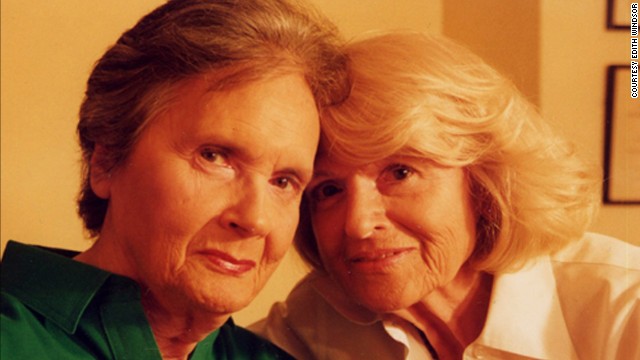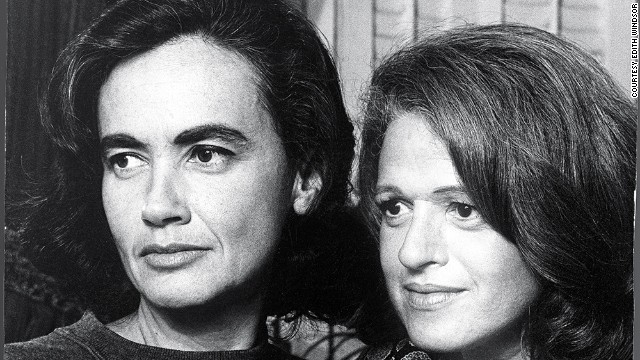Edith Windsor, who filed the original case that could upend the Defense of Marriage Act, says just getting the case to this point is a kind of victory.
“We’ve made a huge step forward and a huge difference in how people look at us,” she said. “And so, it’ll happen. Another year if not now.”
It was the death of Windsor’s life partner, Thea Clara Spyer, that led to the case.
Theirs was not a fleeting romance — the women were together 42 years sharing ups and downs, laughs and tears. They also shared what they’d earned together, including from Windsor’s job as a programmer with IBM and Spyer’s work as a psychologist.


But even after they married in 2007 in Toronto, some 40 years into their courtship, the two women were not “like most couples” in the eyes of the state of New York, where they lived, nor in the eyes of the U.S. government, which under the Defense of Marriage Act mandates that a spouse, as legally defined, must be a person of the opposite sex.
This fact hit Windsor hard in 2009, while in a hospital after suffering a heart attack a month after Spyer’s death. As she recovered and mourned, Windsor realized she faced a hefty bill for inheritance taxes — $363,053 more than was warranted, she later claimed in court — because Spyer was, in legal terms, little more than a friend.
Read more at CNN








